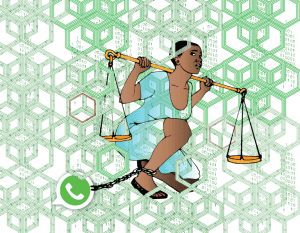Uganda’s Contentious Computer Misuse Law Takes Effect Amid Heightened Fears

Dismayed by the approval of the contentious Computer Misuse Act, rights organisations and a segment of Ugandans have declared their intent to challenge the controversial law legally.
According to a statement from the State House Communication team, Ugandan President Yoweri Museveni signed the new law yesterday. The Computer Misuse Act imposes sanctions on internet users who transmit malicious and unsolicited information and those who disclose details about children without their parents’ or guardians’ permission.
The stipulations of the new law broadly forbid Ugandans from communicating any information that might be taken as mocking, demeaning, or disparaging – threatening penalties of up to UGX 15 M (~USD 4 K) in fines or a jail term of up to 10 years, or both.
However, the legislation has been met with push-backs over concerns that the Ugandan government – with a well-documented history of repressing online media by introducing a daily tax, blocking access to social media, and oppressing dissenting voices – could be extending its reign of censorship.
In recent times, social critic Dr Stella Nyanzi has been imprisoned at least twice for “insulting” President Museveni on social media. Acclaimed author Kakwenza Rukirabashaija was punished earlier this year after he posted a series of tweets criticizing Museveni and referring to his son as “plump” and “pigheaded.”
Since its introduction, activists have claimed that the Bill is an attempt to silence the public and/or single out certain voices that they find objectionable. They say the legislation is intended to gag the public, and or target certain voices deemed unpalatable to the State. And they are concerned that if things continue as they are, the country’s Constitution-guaranteed right to free speech will suffer greatly.
The Computer Misuse Bill, which was the work of Kampala Central MP Muhammad Nsereko, was initially introduced in July and passed last month.
Ostensibly to combat cybercrime, which MP Nsereko has argued requires tighter regulation of the internet and its users, the law amends the primary Act of 2011 to impose steep fines and harsher punishments.
Less than a week after rights organizations petitioned President Museveni, to block the law, citing it as redundant and unconstitutional, Uganda’s long-serving leader (in power since 1986) assented to it. Members of parliament have been commended for fast-tracking the new law.
As part of the stipulations, users who share information about children without the authorisation of parents or guardians face five years in jail and or a fine of around USD 4 K.
Voice or video recording of an individual without authorisation attracts a 10-year sentence or a ~USD 4 K fine.
Section 23(A) creates the offence of “hate speech,” which includes the writing, sending or sharing of any information through a computer, which is likely to ridicule, degrade or demean another person, group of persons, tribe, ethnicity, religion, or gender. If convicted, one faces seven years imprisonment or a fine of UGX 10 M (~USD 2.6 K).
The Act also creates the offence of misuse of social media against a person who uses the platforms to publish, distribute or share information, prohibited under the laws of Uganda or using a disguised or false identity.
But there are somewhat justified concerns that the law is designed to serve a certain class of people who wield power, as illustrated by previous cases where it has been implemented – such as the cases of Dr Nyanzi and the author, both of whom were charged with offensive communication.
In an interview last evening cited by Monitor, Robert Ssempala, the executive director of the Human Rights Network for Journalists in Uganda, expressed concern that the law will be used to stifle expression and dissent.
“It is a very big blow to freedom of expression and journalists’ rights. It imposes criminal sanctions against many Ugandans for expressing themselves. Many charges will be looming around the necks of Ugandans and will make it difficult for anyone to express dissent or hold their leaders to account,” Ssempala said.
Featured Image Credits: CIPESA